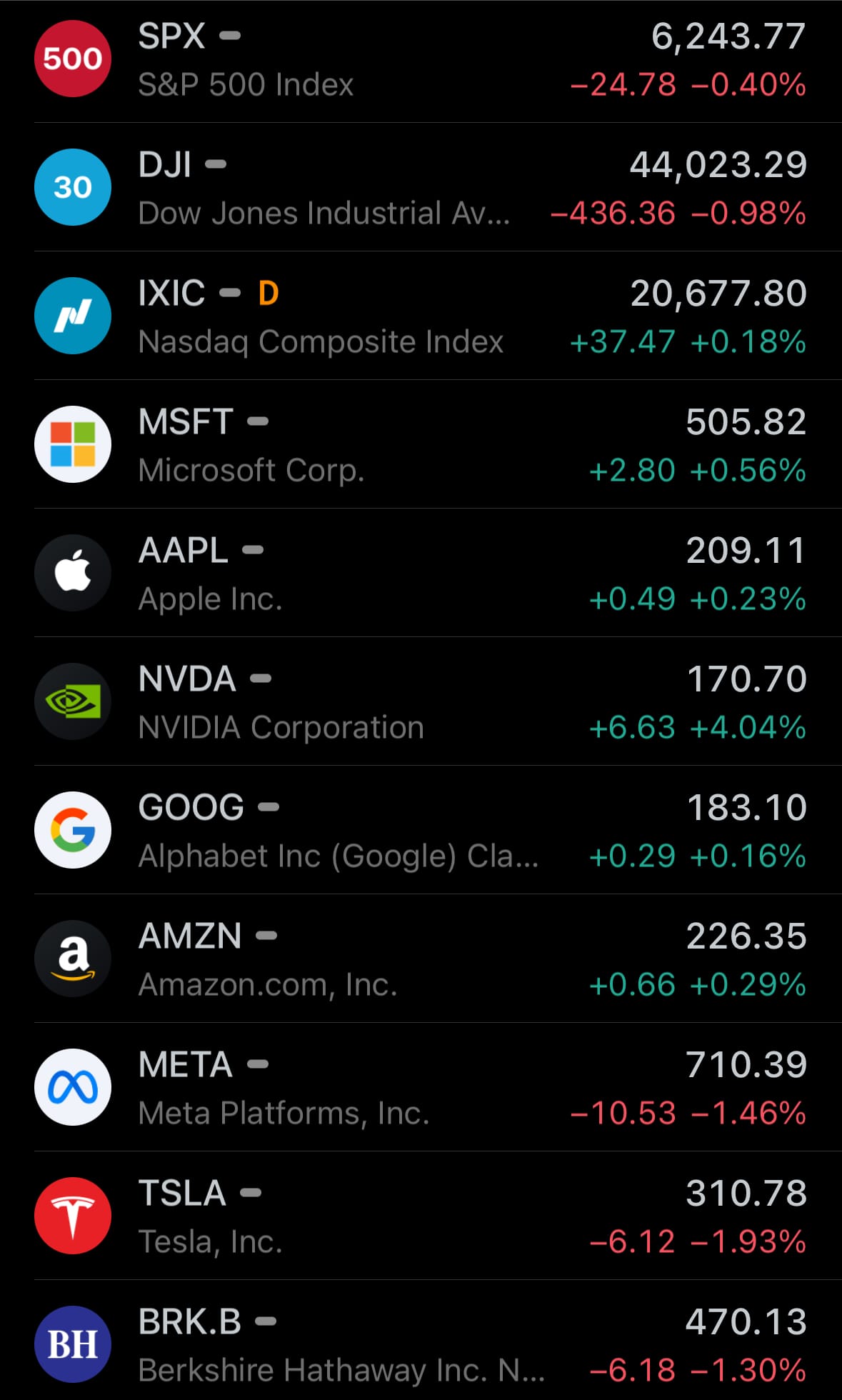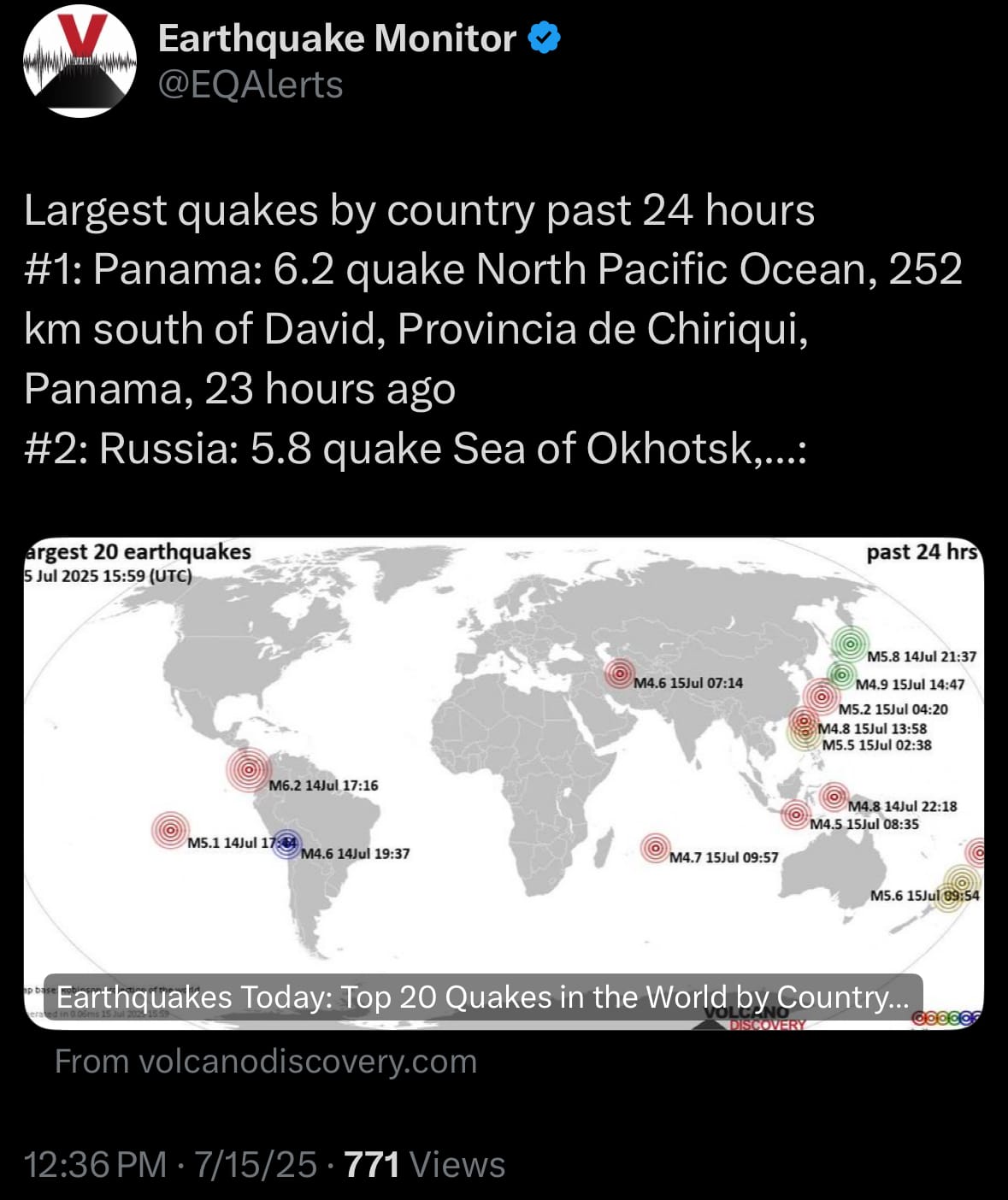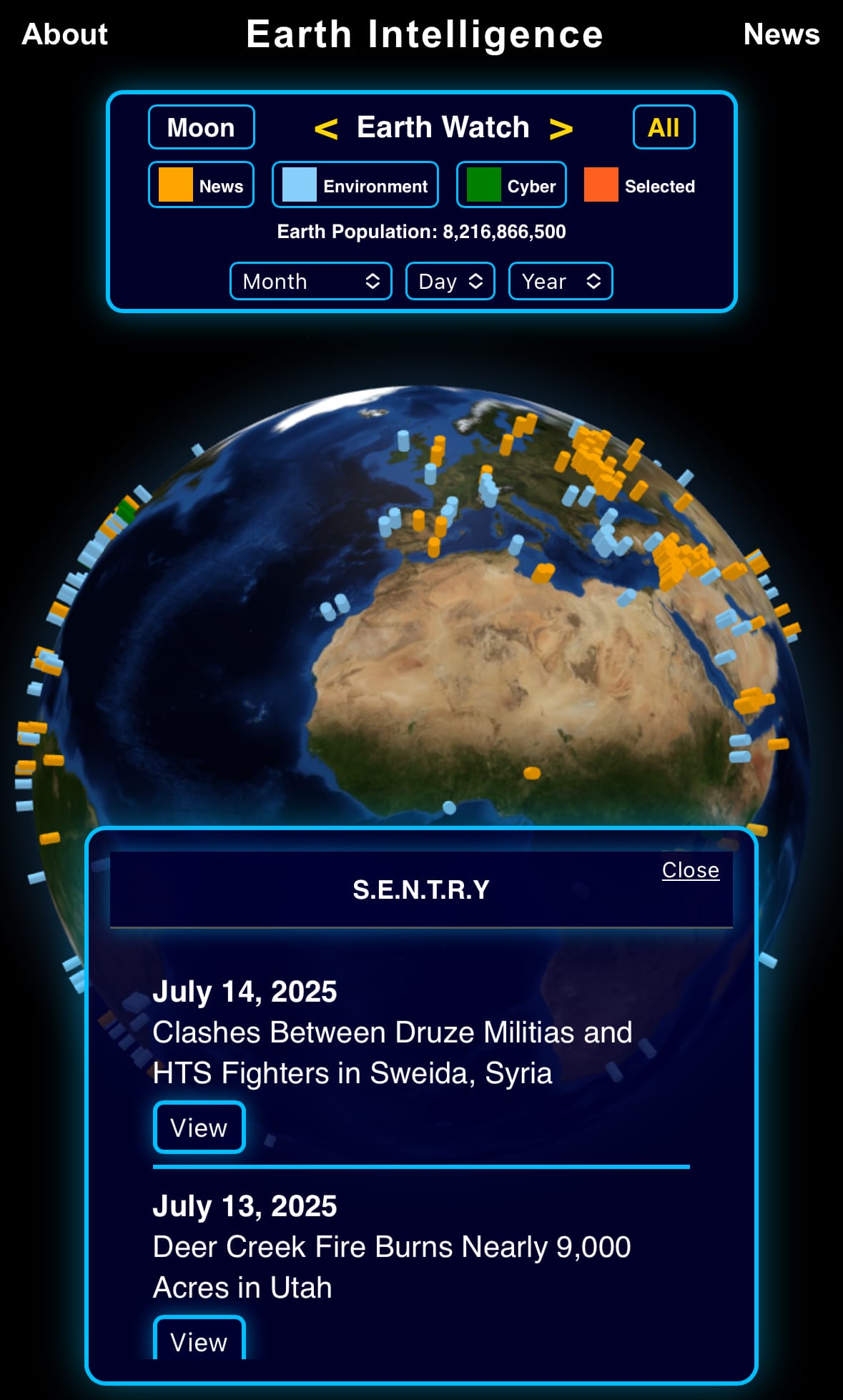Wednesday☕️

Trending:
- On July 10, 2025, the U.S. Pentagon announced a $400 million investment in MP Materials, acquiring a stake through convertible preferred stock and warrants that could result in owning about 15% of the company upon conversion. This deal positions the Department of Defense as MP's largest shareholder and aims to bolster domestic rare earth magnet production at the company's Mountain Pass mine in California—the only active rare earth mine in the U.S.—and its new facility in Fort Worth, Texas. Just five days later, on July 15, 2025, Apple followed with a $500 million supply agreement to purchase rare earth magnets from MP Materials, emphasizing recycled and U.S.-sourced materials for products like iPhones and Macs, aligning with efforts to diversify from Chinese suppliers.
- These deals underscore the strategic importance of rare earth elements, a group of 17 minerals essential for high-performance magnets in technologies ranging from electric vehicles and wind turbines to defense systems and consumer electronics. With China controlling over 90% of global refined rare earths and magnets, the investments highlight the U.S.‘s aim to build a resilient domestic supply chain, enhancing national security and supporting tech innovation while potentially challenging China's dominance in this critical sector.
- The U.S. Department of Defense (DoD) taking a $400 million equity stake in MP Materials on July 10, 2025—potentially owning about 15% of the company and becoming its largest shareholder—marks a significant and unprecedented move for the Pentagon, as it has never before acquired direct ownership in a private company like this rare earth minerals producer. While the DoD has previously supported critical minerals initiatives through grants, contracts, and loans under the Defense Production Act—such as $35 million to MP in 2022 for processing capacity and earlier funding in 2020—it has avoided equity investments until now, facilitated by its Office of Strategic Capital established in December 2022 to partner on national security technologies. This shift underscores a strategic escalation in efforts to counter China's dominance in rare earths, which are vital for defense systems and tech applications.
Economics & Markets:
- Yesterday’s U.S. stock market:

- Yesterday’s commodity market:

- Yesterday’s crypto market:

Geopolitics & Military Activity:
- As Yesterday, July 15, 2025, Suwayda Governorate in southwestern Syria faces intense sectarian clashes starting July 13, sparked by kidnappings and territorial disputes between Druze-majority militias and Sunni Bedouin tribal fighters in areas like Al-Maqous suburb and western villages such as Sumay and Thalaa. The violence has caused over 200 deaths, including civilians, and mass displacement, featuring mortar shelling, drone strikes, and ground assaults across surrounding regions. The Syrian Army, under the Hay'at Tahrir al-Sham (HTS)-led transitional government post-2024 Assad overthrow, entered Suwayda city on July 15 to restore order and seize weapons—its first such incursion—leading to clashes with Druze groups viewing it as autonomy infringement amid mutual claims of sectarian violence and executions. Druze leader Sheikh Hikmat al-Hajri has urged resistance, while Syrian forces, including local Druze recruits, face bias allegations. Bolstering the government, the elite Red Bands HTS commando unit, noted for nighttime operations with night-vision goggles and specialized gear, has deployed in western Suwayda to aid positions in ongoing urban and edge skirmishes.

- Despite a ceasefire declared by Syria's Defense Minister after elder negotiations, allowing conditional security force entry, gunfire and artillery persist on city outskirts, underscoring truce instability. Israel’s Air Force has struck Syrian targets in Suwayda, with recent airstrikes in the last 24 hours hitting Al-Thaala Military Airport and 52nd Brigade Headquarters west of Suwayda using drones and precision weapons on convoys; Israel cites Druze protection via historical ties and escalation fears, defying a U.S. post-Tuesday halt request it initially accepted. Damascus denounces the attacks as sovereignty breaches, and the UN expresses humanitarian worries, calling for de-escalation. This reflects post-Assad challenges where centralization efforts collide with sectarian and regional factors.

Environment & Weather:
- As of yesterday, July 15, 2025, North Carolina faces severe flash flooding in the central and Piedmont regions, caused by heavy rain from slow-moving thunderstorms on already saturated soil from recent tropical systems. The National Weather Service has issued warnings for counties like Guilford, Randolph, Alamance, Orange, Chatham, Durham, Cumberland, and Sampson, with 1 to 3 inches of rain fallen and another 1 to 2 inches possible. This has led to urban flooding, submerged roads, and rescues in Greensboro, Burlington, and Graham. The event follows a month of intense weather, with over 57 reports in central areas, driven by Tropical Storm Chantal remnants that brought up to 12 inches of rain, pushing rivers like the Haw and Eno near historic highs.

- Impacts include numerous rescues in Chapel Hill and Durham, displacing over 60 people and causing one death in Chatham County from a swept-away vehicle. Major routes like Interstate 40/85 are closed, affecting over 120 roads statewide, with power outages for thousands. The Cape Fear River is rising, flooding lowlands in Cumberland and Bladen counties. Emergency declarations are in effect, and Governor Josh Stein urges following alerts and avoiding travel. Forecasts show more storms adding 2 to 4 inches of rain, maintaining moderate flash flood risk into July 16 in the Piedmont Triad and foothills.
- As of July 15, 2025, Nogales, Sonora, Mexico, is facing severe flash flooding caused by intense monsoon rains that have overwhelmed local drainage systems and arroyos. Heavy precipitation, ranging from 25 to 50 millimeters in a short time, has led to rapid water accumulation, exacerbated by urban development and soil conditions from prior droughts. Key areas affected include Avenida Tecnológico, Avenida 5 de Febrero, and neighborhoods like Colonia Granja, where streets have turned into rivers carrying debris and vehicles. Public facilities, such as the IMSS-Bienestar Hospital, have experienced flooding and disruptions, while videos show knee- to waist-high waters submerging commercial zones and dislodging infrastructure.

- Emergency responses are underway, with Protección Civil Sonora issuing alerts for residents to stay indoors and avoid high-risk zones amid ongoing hazards like fast currents and lightning. Rescues have been conducted, including for a family swept by the water, and authorities are coordinating traffic restrictions and aid. At least three fatalities have been reported across Sonora due to the floods, though specific details for Nogales remain preliminary. The situation is expected to ease overnight if no further storms occur, but the monsoon season poses risks for recurrence, underscoring ongoing needs for improved flood infrastructure in the region.


Statistic:
- Largest tech companies by market capitalization:
- 🇺🇸 NVIDIA: $4.162T
- 🇺🇸 Microsoft: $3.759T
- 🇺🇸 Apple: $3.123T
- 🇺🇸 Amazon: $2.403T
- 🇺🇸 Alphabet (Google): $2.213T
- 🇺🇸 Meta Platforms: $1.786T
- 🇺🇸 Broadcom: $1.321T
- 🇹🇼 TSMC: $1.228T
- 🇺🇸 Tesla: $1.001T
- 🇺🇸 Oracle: $659.96B
- 🇨🇳 Tencent: $599.36B
- 🇺🇸 Netflix: $536.33B
- 🇩🇪 SAP: $354.29B
- 🇺🇸 Palantir: $350.63B
- 🇳🇱 ASML: $323.61B
- 🇰🇷 Samsung: $298.69B
- 🇨🇳 Alibaba: $279.08B
- 🇺🇸 Cisco: $266.03B
- 🇺🇸 IBM: $262.74B
- 🇺🇸 AMD: $252.30B
- 🇺🇸 Salesforce: $246.24B
- 🇺🇸 Intuit: $208.08B
- 🇺🇸 Texas Instruments: $198.37B
- 🇺🇸 ServiceNow: $198.22B
- 🇺🇸 Uber: $192.82B
History:
- Apple Inc. was founded on April 1, 1976, by Steve Jobs, Steve Wozniak, and Ronald Wayne in a modest garage in Los Altos, California. Their vision was to democratize technology by creating personal computers that were user-friendly and affordable for the average person, rather than just businesses or tech enthusiasts. The company's first product, the Apple I, was essentially a bare circuit board designed for hobbyists to assemble themselves, but it laid the groundwork for innovation. This was quickly followed by the Apple II in 1977, a fully assembled machine with color graphics and expandable capabilities, which became a massive hit in homes, schools, and small businesses. It played a pivotal role in sparking the personal computer revolution during the late 1970s. Apple went public in 1980, generating enormous wealth for its founders and investors in what was then the biggest initial public offering since Ford Motor Company in 1956. However, the 1980s brought internal turmoil, including a power struggle between Jobs and then-CEO John Sculley, leading to Jobs' ouster in 1985. This era transitioned into the 1990s, marked by fierce competition from Microsoft's Windows operating system, resulting in Apple's shrinking market share, significant financial losses, and a series of leadership changes that nearly drove the company to bankruptcy.
- The turnaround began in 1997 when Steve Jobs returned as interim CEO after Apple acquired his software company, NeXT, bringing fresh ideas and a focus on simplicity and design. One of his first successes was the iMac in 1998, a colorful, all-in-one computer that eliminated floppy drives and emphasized ease of use, helping to revive sales and reestablish Apple's brand as innovative and stylish. The early 2000s expanded Apple's reach beyond computers with the iPod in 2001, a portable music player that could store thousands of songs and featured an intuitive click wheel interface, fundamentally changing how people listened to music on the go. This was complemented by the iTunes Store in 2003, which created a legal digital music marketplace. In 2007, Apple rebranded from Apple Computer Inc. to Apple Inc. to signify its broader consumer electronics focus, and launched the iPhone—a revolutionary touchscreen smartphone that integrated phone, music player, and internet capabilities into one device, disrupting the mobile industry. The iPad tablet followed in 2010, further expanding Apple's ecosystem. Following Jobs' passing in 2011, Tim Cook assumed the CEO role and guided the company through exponential growth, introducing services like Apple Music, wearables such as the Apple Watch, and proprietary silicon chips for better performance. By 2024, these efforts had propelled Apple to become the world's most valuable company, with a market capitalization exceeding $3 trillion, driven by continuous advancements in areas like augmented reality and privacy-focused technologies.
Image of the day:

Thanks for reading!
Earth is complicated, we make it simple.
Click image to view the Earth Intelligence System:



Support/Suggestions Email:
earthintelligence@earthintel.news




